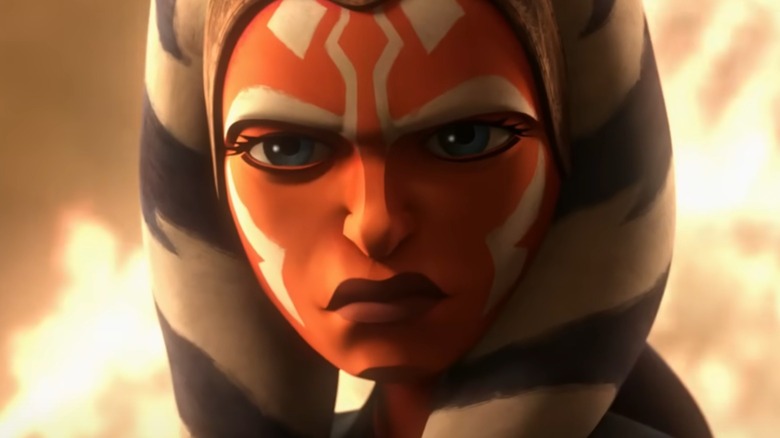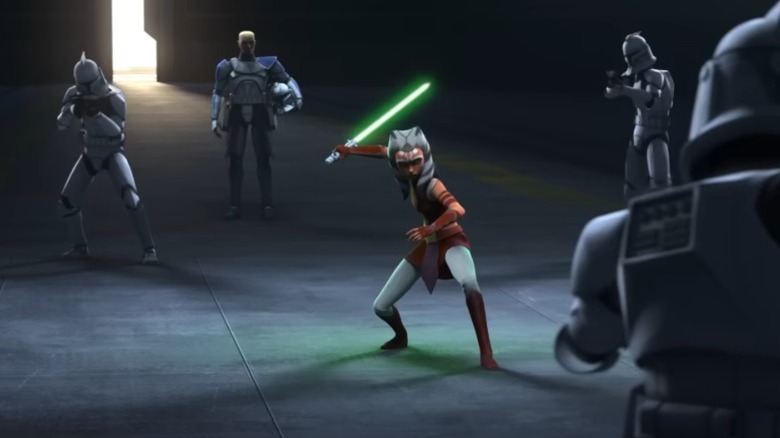Tales Of The Jedi's Slower Pace Is Thanks To Dave Filoni's Study Of Miyazaki's Work
Disney+'s "Tales of the Jedi" explores in anthology format different members of the "Star Wars" Jedi Order during the era before the rise of the nefarious Galactic Empire. Half of the episodes center on Ahsoka Tano (Ashley Eckstein), while the other half focuses on a young Count Dooku (Corey Burton) before he fell under the seduction of the dark side of the Force. Fans of the "Star Wars" prequel trilogy also get to see Mace Windu (TC Carson), Qui Gon-Jinn (Liam Neeson and Micheal Richardson), Darth Sidious (Ian McDiarmid)), who recruits Dooku to the Sith, and Obi-Wan Kenobi (James Arnold Taylor).
The unique structure of the animated series focuses on installments that explore different characters, which has seen the program receive critical praise (via CNN). Much of this is thanks to the pacing established by series creator Dave Filoni, who prioritizes minimal dialogue in favor of weeping scenes of action and scenery that create a distinctive atmosphere. The show's slower pace is also thanks to Filoni's study of Japanese filmmaker Hayao Miyazaki's movies. With the influential animators' flare for creating beguiling mood pieces that take their time to sweep over the audience, this is interesting to see.
Dave Filoni wanted to achieve expressive animation similar to Miyazaki's filmmaking tone
In a similar fashion to what Hayao Miyazaki creates in his films, Dave Filoni was able to draw from his inspiration from the filmmaker when fashioning how the pace of "Tales of the Jedi" would unfold. Speaking at SWCA 2022 (per the official Star Wars website), the showrunner discussed how the short episodes were "tone poems" since very few spoken words were heard, and the visuals of the animation guided the audience on their journey. According to The A.V. Club, Filoni has long admired the work of the Japanese director and studied his films in preparation for his work on "Avatar: The Last Airbender."
In a 2002 interview with Roger Ebert, Miyazaki spoke about his distinctive style of slowed-down narrative focus in his movies. The director stated, "We have a word for that in Japanese," he said. "It's called ma. Emptiness. It's there intentionally." Ebert then asked if that was like "pillow words," which separate phrases in Japanese poems, and the filmmaker replied, "I don't think it's like the pillow word." He clapped his hands three or four times. "The time in between my clapping is ma. If you just have non-stop action with no breathing space at all, it's just busyness, But if you take a moment, then the tension building in the film can grow into a wider dimension. If you just have constant tension at 80 degrees all the time you just get numb."

